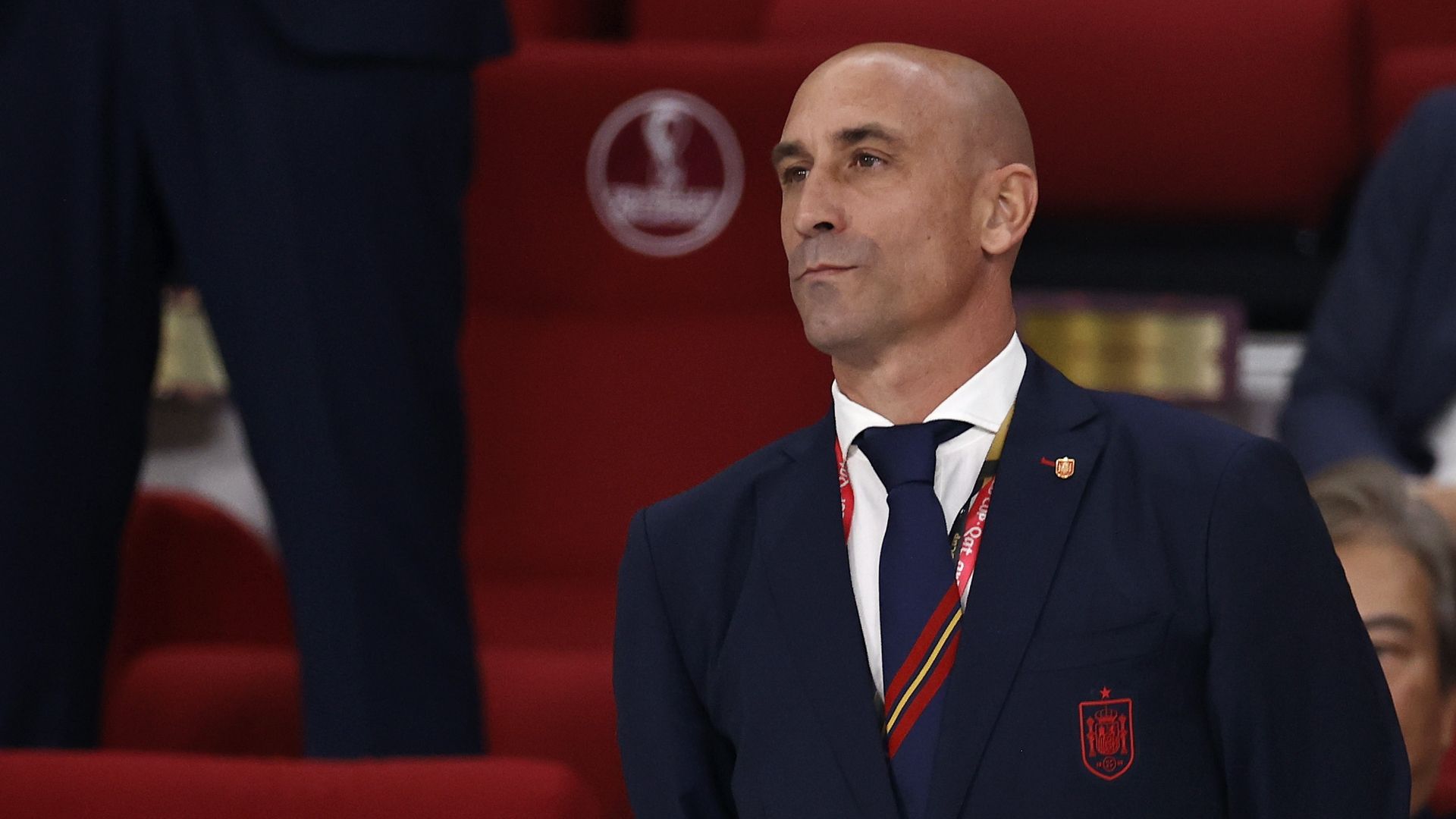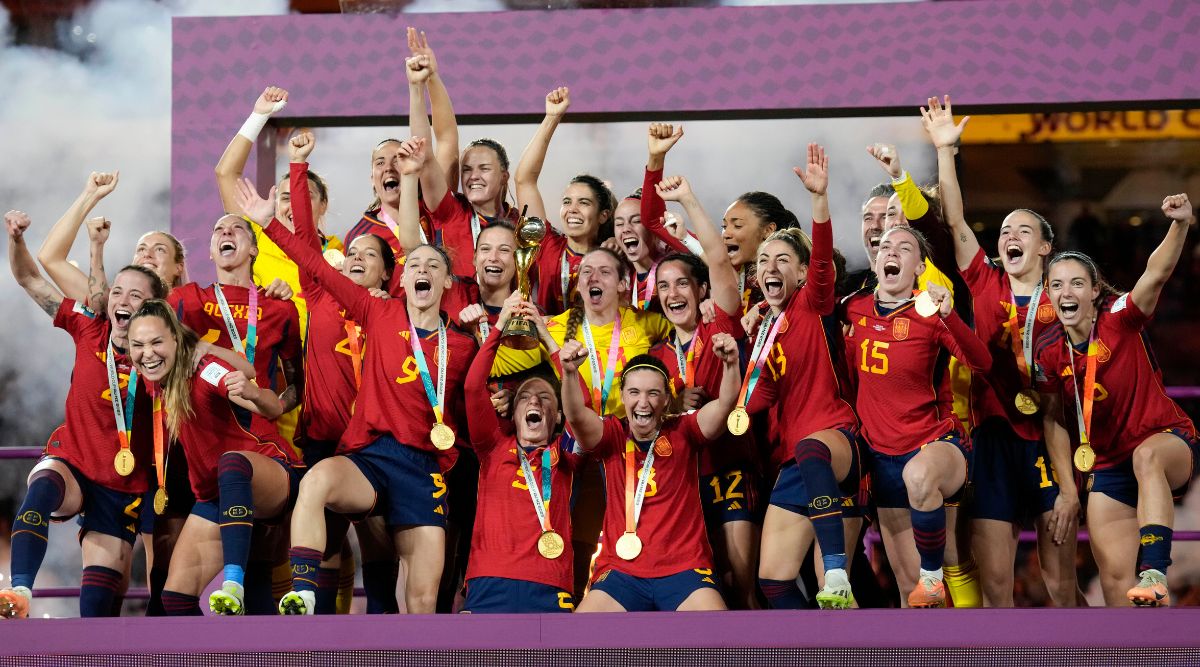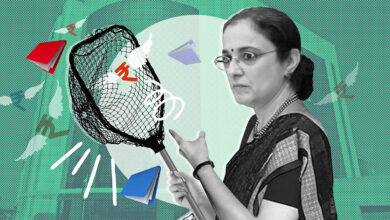Spanish FA President’s Celebration Sparks Debate After FIFA World Cup Victory

Spanish FA President’s Celebration Sparks Debate After FIFA World Cup Victory
In a historic moment that followed Spain’s triumphant victory in the FIFA World Cup, the Spanish Football Association (FA) President Luis Rubiales found himself embroiled in a wave of controversy. The kiss he planted on the mouth of a female player Jenni Hermoso during the post-match celebrations has ignited debates about gender norms, cultural differences, and appropriate behavior in the realm of sports.
The euphoria of Spain’s first-ever FIFA World Cup championship reverberated throughout the nation as fans flooded the streets, waving flags and wearing team jerseys. The Spanish team’s stunning performance and victory against all odds had united the country in a rare display of national pride. Amidst the fervor, the President of the Spanish FA, who had been a visible presence throughout the tournament, chose to show his elation in a highly unconventional manner.
As the players rejoiced on the pitch, the FA President, known for his passionate demeanor, approached one of the female players. Their exchange began with an exuberant hug, but it was the subsequent kiss on the mouth that drew the attention of the world. In a split second, the celebratory act morphed into a lightning rod for discussions about gender dynamics, personal boundaries, and cultural interpretations.

Critics argue that the President’s actions were inappropriate and crossed a line, underscoring the importance of respecting personal space and individual autonomy, regardless of the context. In a rapidly evolving global landscape, where gender sensitivity and inclusivity have taken center stage, some argue that such actions perpetuate a culture of entitlement and male dominance. The incident, they say, highlights the broader issue of women’s agency and the necessity of dismantling ingrained gender stereotypes.
Supporters of the FA President, however, contend that his actions were a spontaneous display of pure emotion, emblematic of the charged atmosphere that surrounds competitive sports. They assert that cultural differences play a significant role in how such actions are perceived, and that within certain contexts, gestures that might be deemed inappropriate elsewhere can be understood differently. The cultural lens, they argue, should not be overlooked in these discussions.
This incident comes at a crossroads for the world of sports, which has been grappling with issues of gender equality, diversity, and respect. Advocates of change emphasize that the sports arena must evolve to be a safe space for everyone, free from the grip of archaic norms that can perpetuate inequalities. The kiss, they say, is a reminder of the work that still needs to be done in order to create an environment where athletes are celebrated for their achievements, not judged by their gender.

The fallout from the incident has led to a broader conversation about the expectations placed upon public figures, especially those in positions of power. As leaders in their respective fields, their actions are often magnified and scrutinized. The question arises: do these figures have a responsibility to set an example and adhere to a certain standard of behavior?
Advocates for personal freedom argue that the FA President should not be held to a stricter standard than anyone else, and that his actions were a spontaneous expression of joy that should not be overanalyzed. However, those who believe in the power of symbols assert that such moments have a ripple effect on society, influencing perceptions and attitudes in ways that can either reinforce or challenge established norms.
In the aftermath of the incident, the female player involved shared her perspective. She expressed her gratitude for the support of her teammates and coaches, while also acknowledging the complexity of the situation. Her statement resonated with those who believe that empowering women means giving them agency to define their experiences and reactions. It also opened the door to discussions about communication, consent, and empowerment, especially within the high-stakes world of professional sports.
The controversy has prompted the Spanish FA to issue an official statement addressing the incident. They affirmed their commitment to inclusivity and gender equality, acknowledging that while the President’s actions may have been meant in a celebratory manner, they should serve as an opportunity to foster conversations about appropriate conduct and respect. The statement underscored the importance of creating an environment where players, regardless of gender, feel comfortable and respected.
In a rapidly interconnected world, where news travels at the speed of a click, discussions about cultural norms and societal expectations are more relevant than ever. The incident involving the Spanish FA President serves as a microcosm of broader dialogues about gender, power, and representation. It raises questions about the intersection of personal and public identities and invites a collective examination of the roles we all play in shaping the world we inhabit.

As the fervor of Spain’s FIFA World Cup victory gradually subsides, the conversations sparked by the FA President’s celebratory kiss continue to evolve. Regardless of where one stands on the issue, it is clear that this incident has shone a spotlight on the intricate tapestry of societal norms, cultural interpretations, and individual rights that intersect in the world of sports and beyond. It serves as a reminder that progress is an ongoing journey, and that even moments of triumph can provide valuable opportunities for reflection and growth.




